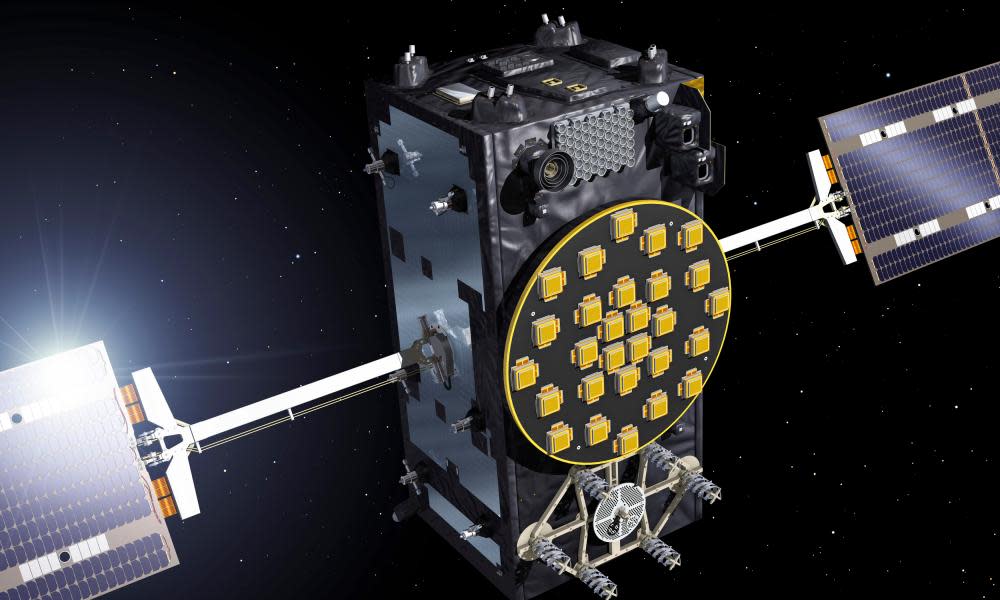The Galileo space row shows the mess of Brexit in microcosm

A row over the UK’s access to the Galileo project, the European satellite global-positioning system used both for civil and military purposes, is the latest tussle about what Brexit would mean for British science and technology. For all the familiar, rhetorical huffing and puffing, the dispute is another illustration of the myriad small-print complexities that need to be resolved if the UK departs from the EU.
The government’s position, outlined in a document just released by the UK Space Agency, is that the UK wants to retain its participation in Galileo, including access to classified data from the satellite system needed for security and defence. The government says that this would be in the mutual interests of both the EU and the UK, that the proposed exclusion from “security-related discussions and exchanges to the post-2019 development of Galileo” is inconsistent with previous agreements. It stresses however that if some satisfactory arrangement can’t be reached then the UK will develop an alternative, competing system. And it will ask for a refund of Britain’s 12% contribution to the €10bn cost of Galileo.
For the EU the position seems quite clear. The UK agreed previously to restrictions on access to sensitive, secure data from Galileo for countries outside the EU, so why should it expect to become an exception? This is just another example of the “let’s just keep everything we have now” fantasy that one senior EU official recently lamented.
Needless to say, your response to this tiff will depend on your sympathies to Brexit generally: either “what on earth – or in space – did we expect?”, or “why is Brussels being so bloody-minded?” Either way, it is rather late in the day to be discovering yet another stumbling block. In a paper published in March, the House of Commons committee on science and technology expressed exasperation at the government’s dilatory attitude towards the complications of the many science-related EU programmes and agreements in which the UK has been embedded. In its Panglossian document Collaboration on science and innovation last September, the government expressed eternal optimism that all could be resolved while offering very little indication of how that might happen.
On Galileo that document said little more than, in effect: “Our people have helped develop it and we’re really good at space, so we hope you’ll let us carry on as before.” It pointed out that there are currently negotiations with Norway and the US for access to the crucial public regulated service (PRS) from Galileo, the encrypted signal designed for security activities. Indeed there are, but nothing is yet agreed.
Another point of contention is the EU’s Copernicus satellite network for monitoring of the natural environment, which will collect important data on climate change, natural disasters and ecosystems such as fish stocks. Here too the future of UK involvement is unclear – and is complicated by the fact that Copernicus is partly funded by the European Space Agency (ESA). Because ESA operates independently of the EU, the UK would remain a member after Brexit.
In short, it’s getting very messy, and the clock keeps ticking. The UK space agency, though, is in a rather bullish mood in the wake of the recent Space Industries Act, which establishes a regulatory framework for all kinds of new space initiatives including the building of launch sites on UK soil. Two sites are already planned, in Cornwall and Scotland. Private space-industry companies are springing up everywhere, and while it’s doubtful that the UK could achieve very much in space by itself, its continuing role in ESA, along with hoped-for collaborations with the US and Australia (which announced a new $26m space agency earlier this month), are helping to create the impression of a boom time for British astronautics. No wonder Tim Peake’s six-month stint on the International Space Station is being milked for all the publicity value it’s worth.
In one view, Brexit creates an opportunity to unfurl the UK’s space ambitions on a wider platform. In another, jeopardising the potential markets in Europe, at such a crucial moment, while hyping vague plans to do space deals with nations on the other side of the planet, looks insane.
And this, of course, is Brexit in microcosm, as doubtless played out also on countless other commercial and industrial stages across the sectors. Once again it seems that the only way we’ll have our cake and eat it is by baking our own.
• Philip Ball is a science writer

 Yahoo News
Yahoo News 
